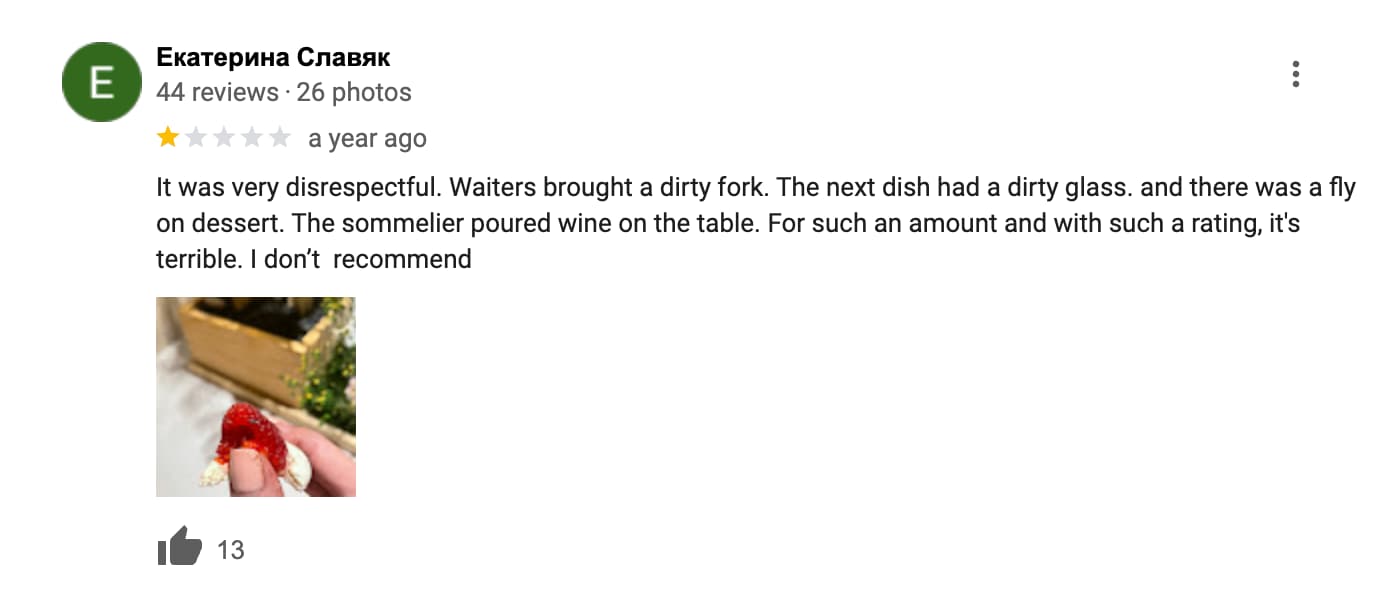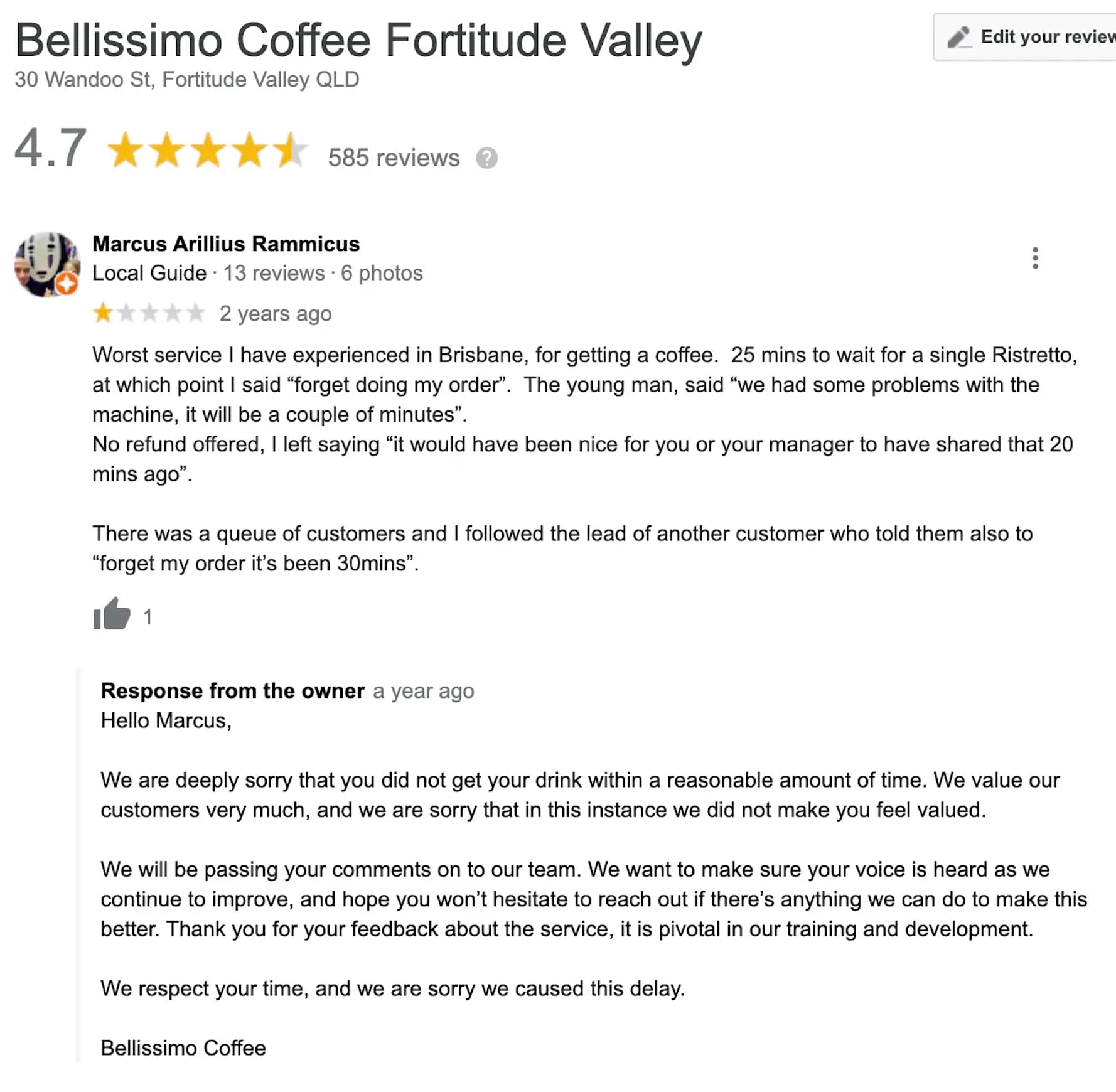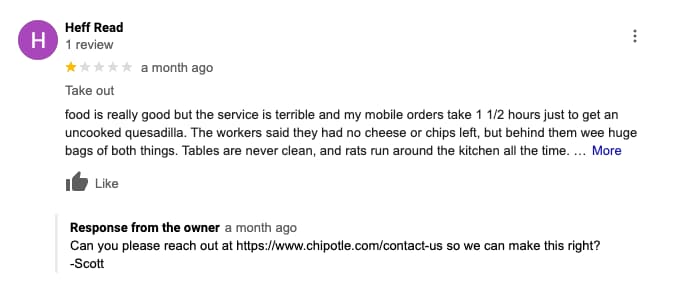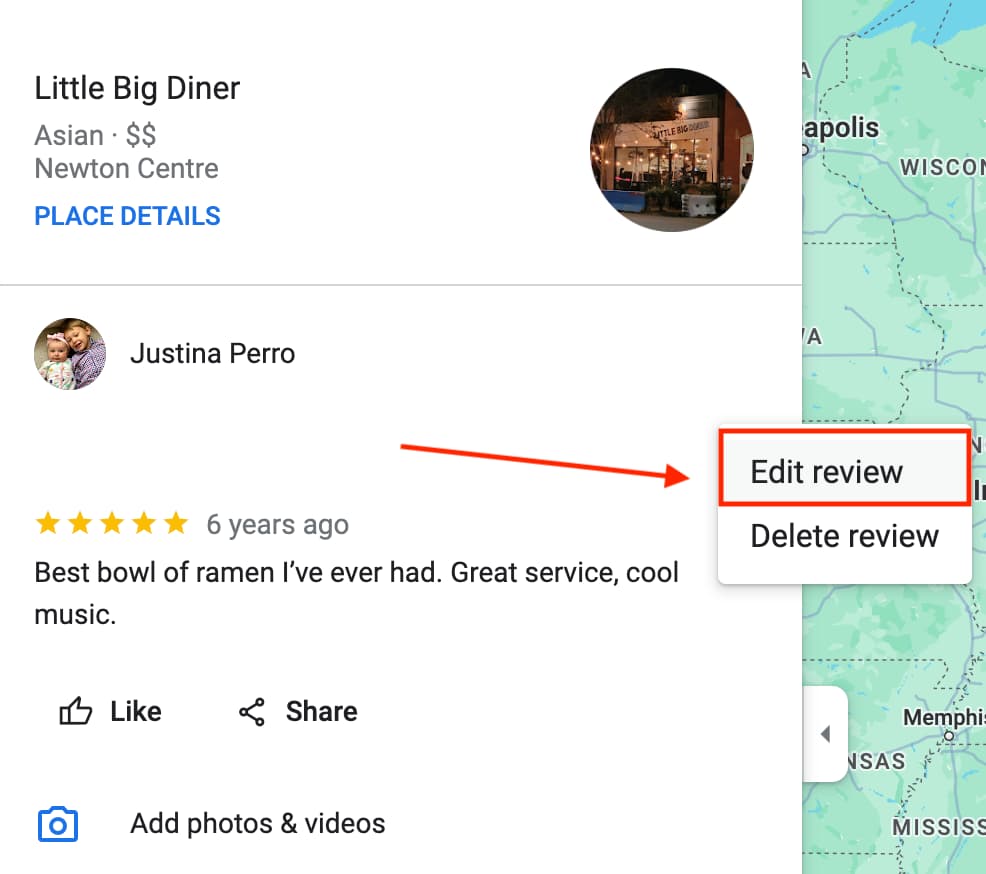Review Management
A Step-by-Step Guide to Responding to Bad Google Reviews
Learn best practices for responding to bad Google reviews to repair customer relationships and improve your score. Complete with real-life examples.

So you got a bad Google restaurant review.
It happens. Even 3 star Michelin winner and Conde Naste's 2024 "Best Restaurant In The World" darling Disfrutar in Barcelona, has this bad Google review:

Bad days happen to good restaurants. And unfortunately, you can't remove bad Google reviews unless you prove it has violated one of Google's strict guidelines for removal.
We also know bad reviews hurt your business—with 92% of consumers saying they won't visit a restaurant with less than 4 stars on Google.
Luckily, there are things you can do to mitigate bad Google reviews. You just need to have the right tools in place to implement an effective strategy to improve your restaurant's Google reviews.
In this blog, we'll break down a step-by-step guide on how to best respond to bad google reviews, complete with real-life examples from Google reviews.
Step 1: Acknowledge and Apologize
Step 2: Respond in a Timely Fashion
Step 3: Offer Insight, but Move the Conversation Offline
Step 4: Ask if They're Willing to Update their Google Review
Final Thoughts: Be Proactive, not Reactive
Step 1: Acknowledge and Apologize
Think about a bad experience you've had as a customer. How did it make you feel? For most, the feelings range from disappointed to even angry. And when you feel this way, you want validation and perhaps even vindication.
Step 1 to improving your bad google reviews is making your customer feel seen. Which means responding to their bad review and owning up for your part in their bad experience.
Here's a great example of how to do this from a Bellissimo Coffee in Fortitude Valley, Australia:

As you can see—the owner both acknowledged and apologized for the subpar customer experience. They also discussed how they're using the feedback to inspire change so hopefully in the future, this doesn't happen again.
By letting the customer know they are valued, there's a much higher likelihood he will give them another try, and perhaps even update his bad Google review if it goes well.
Step 2: Respond in a Timely Fashion
One in five customers expects to hear back when leaving a bad Google review.
And since a bad customer experience can trigger a lot of negative emotions, it's best to respond as quickly as possible.

A quick Google search will tell you the best practice around how quickly to respond to a bad Google review is ~24 hours. In the world of instant online gratification, this sounds reasonable.
Make it a daily priority to check in on your Google listings for new reviews. Ideally, you should try to respond to all of them, but triage by responding to bad Google reviews first.
Easier said than done, right? Especially if you have more than one restaurant location. We get it. Unless, of course, you have restaurant reputation management software.
Step 3: Offer Insight, but Move the Conversation Offline
Here's how you can really start to repair the damage done—offer more insight and a solution. Perhaps it was all a big misunderstanding. Or maybe there really were mistakes made. Either way, addressing it head on is key.
A best practice is to respond with a mea culpa and/or additional context—depending on the situation. From there, ask to take it offline to resolve.
Moving the conversation offline is key to truly reaching a resolution. Words get lost in translation online, but a real-life conversation can clear the air and gauge how to best repair damages (e.g. simple apology, store credit, gift card, etc.).
Here's how Chipotle handles bad Google reviews at a location in Massachusetts:

Step 4: Ask if They're Willing to Update their Google Review
The other positive thing about taking the discussion offline? Once you resolve the issue, you can ask if they're willing to update their Google review in private.
This is ok to do—as long as you've taken the steps to make things right.
And it often can result in updates to bad Google reviews that help improve your score.

Final Thoughts: Be Proactive, not Reactive
The key to successfully managing Google restaurant reviews? Be proactive, not reactive. That means having a system in place to respond efficiently and effectively, without distracting you away from your day job.
And that's something restaurant reputation management software can give you. A seamless, AI-powered way to manage all of your restaurant feedback and online reviews in one place.
It's fast. It's easy. It's a better way.
Don't let bad Google reviews get the best of you. Take charge of your online reputation with Akira.